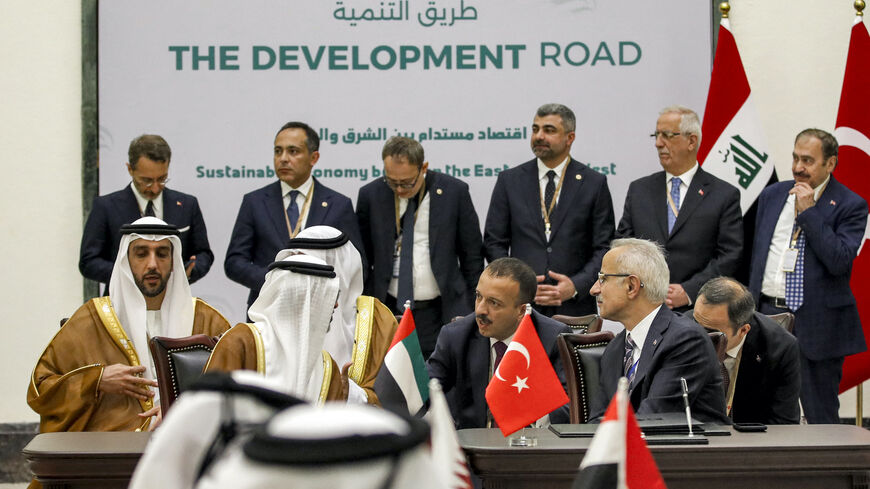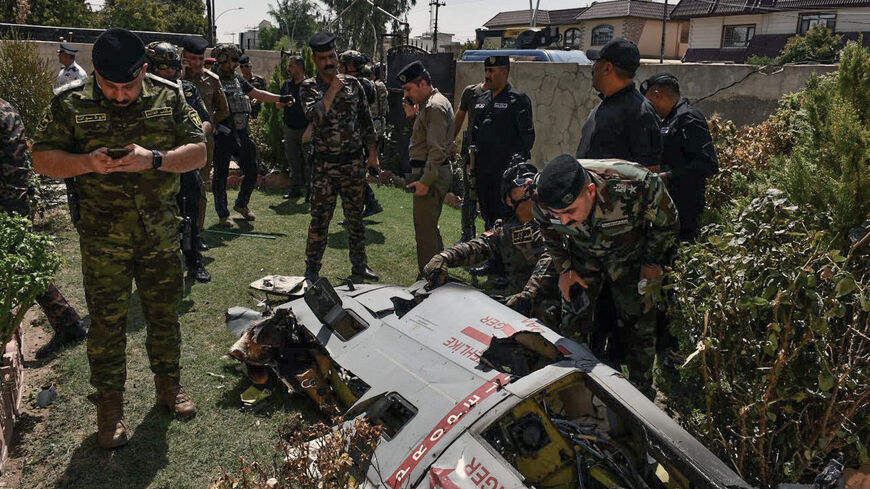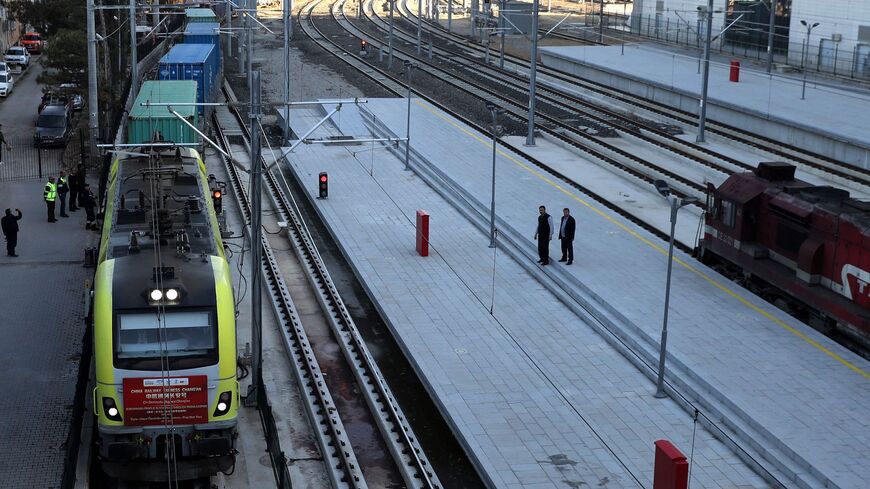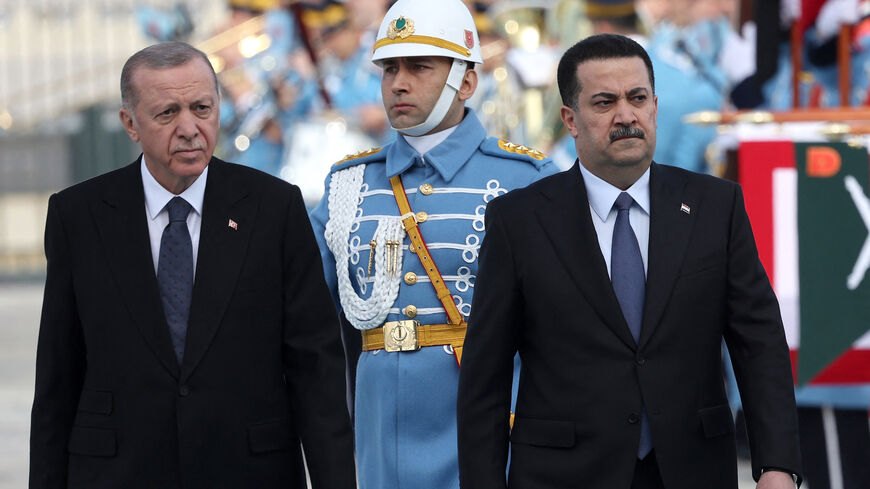Turkey to host Iraq, Qatar, UAE officials for Development Road summit
The estimated $20 billion project was formalized during Turkish President Recep Tayyip Erdogan’s official visit in April to Baghdad and will link Basra to Turkey via a rail and road network.

Turkey will host a four-way summit with Iraq, Qatar and the United Arab Emirates on Aug. 29 to discuss an ambitious multi-billion-dollar project to connect the Iraqi port of Basra on the Persian Gulf to Turkey and beyond, Turkish Transport and Infrastructure Minister Abdulkadir Uraloglu said on Friday.
The meeting will bring together relevant ministers from all three states at the Dolmabahce Palace, home to the last Ottoman sultan, where “significant decisions” will be made, Uraroglu told Turkish state broadcaster TRT. Qatar and the UAE are potential investors in the project.
The estimated $20 billion project was formalized during Turkish President Recep Tayyip Erdogan’s official visit in April to Baghdad and will link the al-Faw port in Basra that is currently under construction to Turkey via a 1,275-kilometer (792-mile) rail and road network. Abu Dhabi’s AD Ports Group has inked a preliminary deal with Iraq’s General Company for Ports of Iraq to develop al-Faw and its planned economic zone.
Iraq is home to roughly 10% of global oil reserves and accounts for 5% of global production. Energy will hence play a pivotal role in the scheme. The Iraqi government reckons that once completed, the project will significantly reduce the cost of trade between China and Europe.
Nejat Tamzok is a Turkish academic who writes on the energy and mining industries. “The project is expected to reduce the time it takes to transport goods between the Chinese port of Shanghai and the Dutch port of Rotterdam from thirty-three days to fifteen days by creating an alternative route to the Suez Canal. It includes not only transportation infrastructure but also energy transmission and communication lines,” he observed in a recent essay for the Eurasia Review.
Tamzok noted, however, that the Development Road faces stiff competition from China’s Belt and Road Initiative, the US-supported India-Middle East-Europe Economic Corridor and Iran’s rival plans to develop its own ports for regional trade routes connecting Asia with the Middle East and Europe and is leery of any projects that would diminish its political and economic clout, as the Development Road likely would. At the same time, Iraq does not figure in China’s regional transport projects and “Ankara’s priority is to be a direct main corridor between China and Europe.” For Turkey, the Development Road is mainly about bolstering commerce with the Gulf.
Next week’s summit comes against the backdrop of concerted efforts between Iraq and Turkey to improve bilateral ties. Erdogan’s visit, his first to the Iraqi capital in 14 years, saw the signing of a slew of accords in the fields of energy, trade and water sharing. Last week Turkey and Iraq announced the signing of what the sides called a “historic” military cooperation agreement.
A key component is Turkey’s ongoing military campaign against Kurdistan Workers Party (PKK) militants based in Kurdish-controlled northern Iraq. Ankara argues that eliminating the group from Iraq is critical for the Development Road and wants Baghdad to aid in its anti-PKK endeavors to the full.
Analysts point out, however, that Turkey and Iraq have signed multiple accords in the past that have rarely been fully honored. Arzu Yilmaz is an associate professor at the University of Kurdistan Hewler in Erbil who has written extensively on Turkey, Iraq and the Kurds. Signing new deals that envisage carrying oil from Basra when even the existing Kirkuk-Yumurtalik oil pipeline between Turkey and Iraq remains sealed hardly inspires confidence, she told Al-Monitor. Ankara turned off the spigot last in March 2023 after an international court of arbitration ruled that it had violated Iraq's sovereign rights by allowing the country's Kurds to export their oil directly to Turkey without Baghdad's consent.
Iraq's drought problem has assumed critical proportions, yet a water-sharing deal between Iraq and Turkey, which controls the headwaters of the Euphrates and Tigris rivers, also has yet to be successfully concluded, Yilmaz added.










